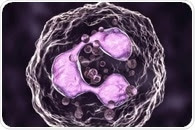| ||||||||||||||||||||||||
| ||||||||||||||||||||||||
| ||||||||||||||||||||||||
| ||||||||||||||||||||||||
| ||||||||||||||||||||||||
| ||||||||||||||||||||||||
jueves, 29 de agosto de 2019
Medical News | Medical Articles: Webinar: Label-Free Live Cell Imaging Meets Immuno-Oncology
Medical News | Medical Articles
Suscribirse a:
Enviar comentarios (Atom)










































No hay comentarios:
Publicar un comentario